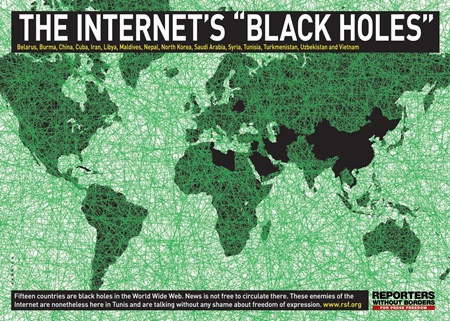Who is Wael Ghonim? Whether the name is familiar or not, Wael Ghonim is the new Egyptian face of the freedom uprising in Egypt and the human symbol of the power of the Internet. Ghonim, a marketing manager for the Internet giant Google, managed to become the focus for the dispersal of information and tactics for Egypt’s restive population. It was conceptually his arrest that led to the final crushing pressure for President Mubarak, leader of Egypt for over thirty years, to succumb and abdicate his presidency on Thursday. The real power of freedom however was not an individual but rather the instantaneous availability of the latest unfiltered information made available by the Internet, that surprised and overwhelmed the Egyptian autocracy, and resisted its determined efforts to shut it down. The power of the Internet continues to grow to the point where “secrets” held by government are increasingly vulnerable, and the very existence of dictator’s capacity to control information, and therefore their populations, increasingly suspect. The iron fisted rulers of Syria, Iran, Saudi Arabia, Cuba, and China have certainly taken notice and are alarmed for their own governments’ vulnerability.
The ability to disperse information out of the control of governments to influence events is not a new phenomena. The presence of so many talented printers in America at the time of the American Revolution made possible rapid distribution of revolutionary concepts for digestion by the populous and their progressive weaving into the fabric of the body politic. The availability of telegraph made intercontinental development possible in the United States by achieving the simultaneous awareness of people thousands of miles apart, linking their common reaction to events in a coordinated fashion. There has not been, however, until now, truly simultaneous global linking that is offered by the Internet, and it is now the stalwart protector of free expression, for both good and ill, to all nations on earth, regardless of their ruler’s opinion as to what is “best” for their people. Whether the information is searched, linked, video shared, tweeted, or facebooked, the overwhelming access offered to real time events has changed us forever.
As a free society, we are in no position to drop our guard against those in authority who are threatened and seek to “control” this phenomena. The Internet since infancy has been maintained by the United States to the advantage of its development and to the horror of those world wide and even within the U.S. border who believe better “control” is in order. They seek to “tax” the Internet and thereby achieve control of the commerce, “police” the Internet and determine what is or is not politically correct, and “regulate” the Internet to assure governmental control over who would have access and to what extent.
Whatever your political or philosophical persuasion, however you feel about the potentially “dark” use of the Internet to invade privacy, lovers of freedom must be unequivocal in the Internet’s defence from the “good intentions” of legislators. The beauty of the powerful, and stunningly non-violent upheavals in Eastern Europe, Lebanon, Tunisia, and now Egypt, over the past decades are the direct gift of the free flow of ideas and the exposure for all to see of the empty and reactionary delusions of authoritarian governments. The greater control over the access of information and the greater the likelihood of the Tienanmen Square and Tehran massacres that are buried in shadow.
Freedom calls for illumination and we all gain from the brightness of its light. As Dylan Thomas so aptly put, Rage, rage against the dying of the Light. God bless the Internet and its power to project the human Voice.

Egypt 2011 – An amazing Non-Violent Revolution by Social Network. I am sure Mahatma Gandhi would have been proud of our Egyptian friends an…